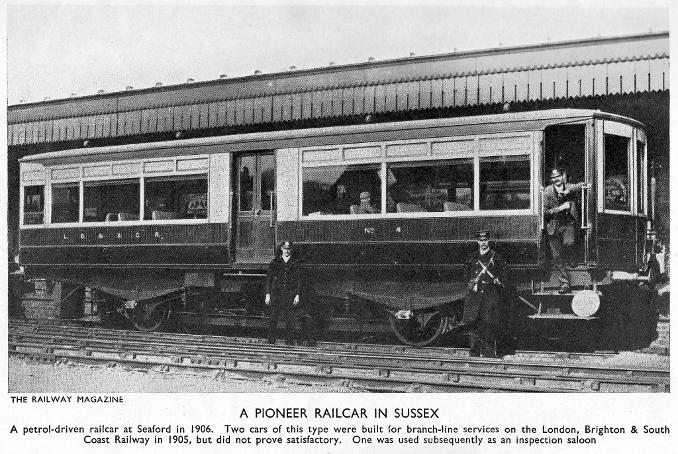
1906
A.S.L.E.& F.’s inauguration of house purchase loan scheme for
Society members
THREE NEW A.S.L.E.&F. BRANCHES
OPENING ON THE SAME DAY BY W. WARWICK
The Eastbourne, Tunbridge Wells & St. Leonards Branches of
A.S.L.E.&F. were opened on 25th February 1906.
ACCIDENT AT WORK
7th March 1906
New Cross engine driver W.J. Turner was underneath oiling his engine's motion in New Cross locomotive shed, when a second engine hit his and it was moved slightly. Engine cleaner Littlecot gave no warning of moving the engine and was forbidden to by instructions.
ROYAL TRAIN AT SINGLETON
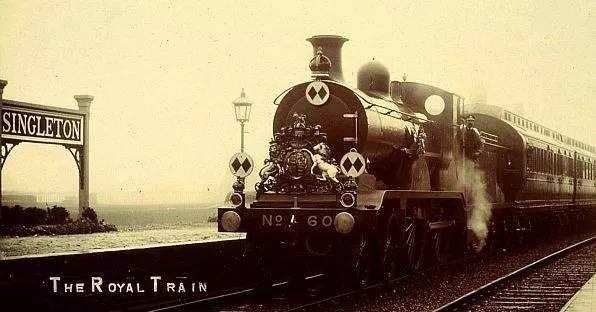
PHOTOGRAPHER UNKNOWN
Billinton class B4 No.60 ‘Kimberley’ with the Royal Train at Singleton,
c1906 (or 1909) conveying King Edward VII on a visit to West Dean House
The Royal Train is seen on the down platform and facing north towards Midhurst, having just arrived via Chichester (wrong road).
INTRODUCTION OF MOTOR TRAIN SERVICE
11th JUNE 1906
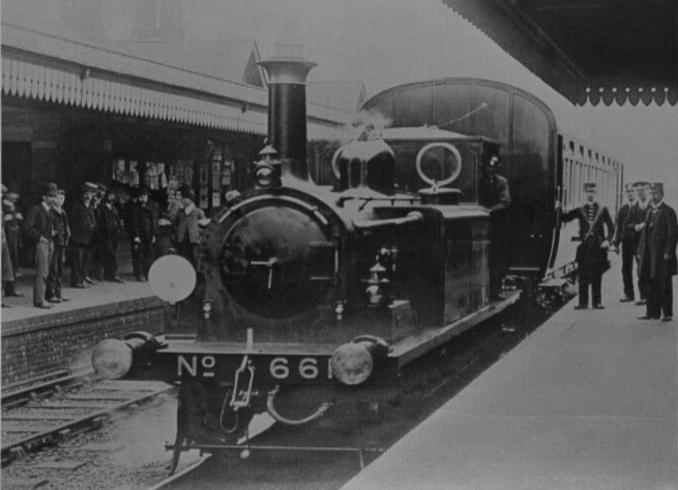
PHOTOGRAPHER UNKNOWN
11th June 1906 first motor train service between West Croydon and Belmont at Wallington. The service was later extended to Epsom Downs
This was a composite locomotive No. 661”SUTTON" and coach with controls linked pneumatically to a compartment at the further end of the trailer car so that the engine when in the rear, could be driven from there, making reversing unnecessary
ROYAL TRAIN DEPARTS
MIDHURST
WEDNESDAY 13 JUNE 1906.
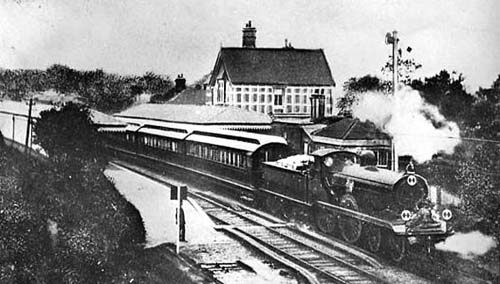
PHOTOGRAPHER UNKNOWN
B4 Class 4-4-0 No. 42 "His Majesty" about to leave Midhurst LBSCR Station after King Edward Vll and Queen Alexandra opened the Tuberculosis Sanatorium and departing at 6.00pm.
ACCIDENT AT WORK
19th September 1906
Eastbourne (?) engine driver Israel Clark, having arrived at London Bridge, Clark went under the engine to lubricate the big ends and eccentrics. While he was there, empty carriages were shunted onto the rear of his train, moving his engine a short distance as he was between the connecting and eccentric rods. Clark was at fault for not protecting himself by placing a red flag on the reart of his train, in accordance with the Company Working Timetable notice dated 1902, regarding placing red flags or lights on the rear of the train.
STORIES FROM THE SHOVEL
extracted from RTCS book on locomotives of the LBSCR
On 17th October, 1906, Brighton Driver Thompson was working his engine Class B4, No. 45 'Besborough' when running south of Horley at 10.43 p.m. with three empty Pullman cars and four carriages required the following morning for a party of American business executives visiting Southampton Docks. on observing tht they were following a goods train down the main line at no more than 15 to 20 m.p.h. Driver Thompson decided to round his engine administer oil as necessary. He was returning to the cab and safety in the darkness, when he forgot the two firebox inspection castings and on bumping into them, slipped and fell on to the track. Fortunately, his fireman, Cook, noticed his plight and hurriedly stopped the train, and with the guard ran to the rescue of his mate. Driver Thompson was discovered wandering dazed along the up road, but apart from serve bruising and minor cuts was uninjured and was able to sit in the cab until Brighton was reached and medical attention found.
ACCIDENT AND DISABLEMENT
November 1906
Engine driver C. Edwards Chichester branch old age November 1906, aged 62. Joined the Amalgamated Society of Railway Servants, on the 10th April 1890
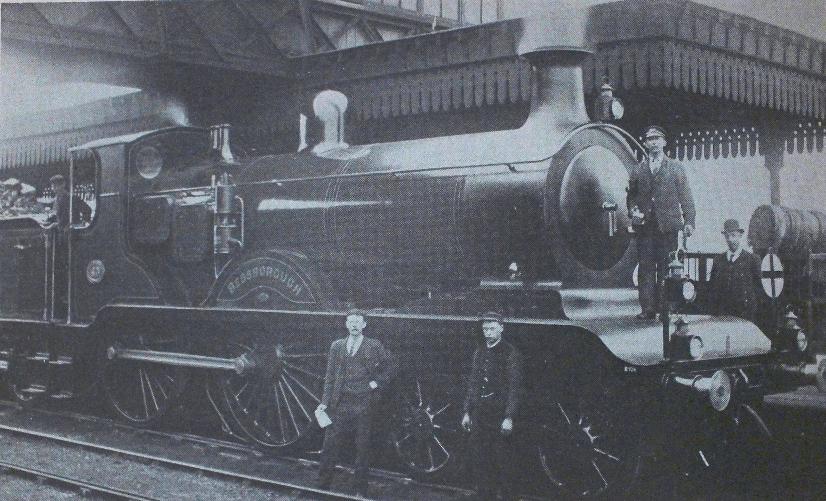
PHOTOGRAPHER UNKNOWN
PHOTOGRAPHER UNKNOWN
Three Bridges Loco men with loco No. 258 'Cosham' taken in 1906. No. 258 spent most of its working life allocated to Three Bridges loco
ACCIDENT AT WORK
17th December 1907
Brighton engine driver John Tapner and his fireman John W. Farrington whilst at Seaford, Signalman Pollington set the road and lowered the signals for the light engine to proceed to the up line. Porter Waltert Marsh, was acting as shunter, signaled the driver to set back. The empty coach train ran through the points and collided with the light engine, Tapner and Farrington received their injuries. The responsibility for the accident was entirely with Marsh, who admitted that he should not have signaled to the driver of the empty coach without receiving permission from signalman Pollington to do so.
